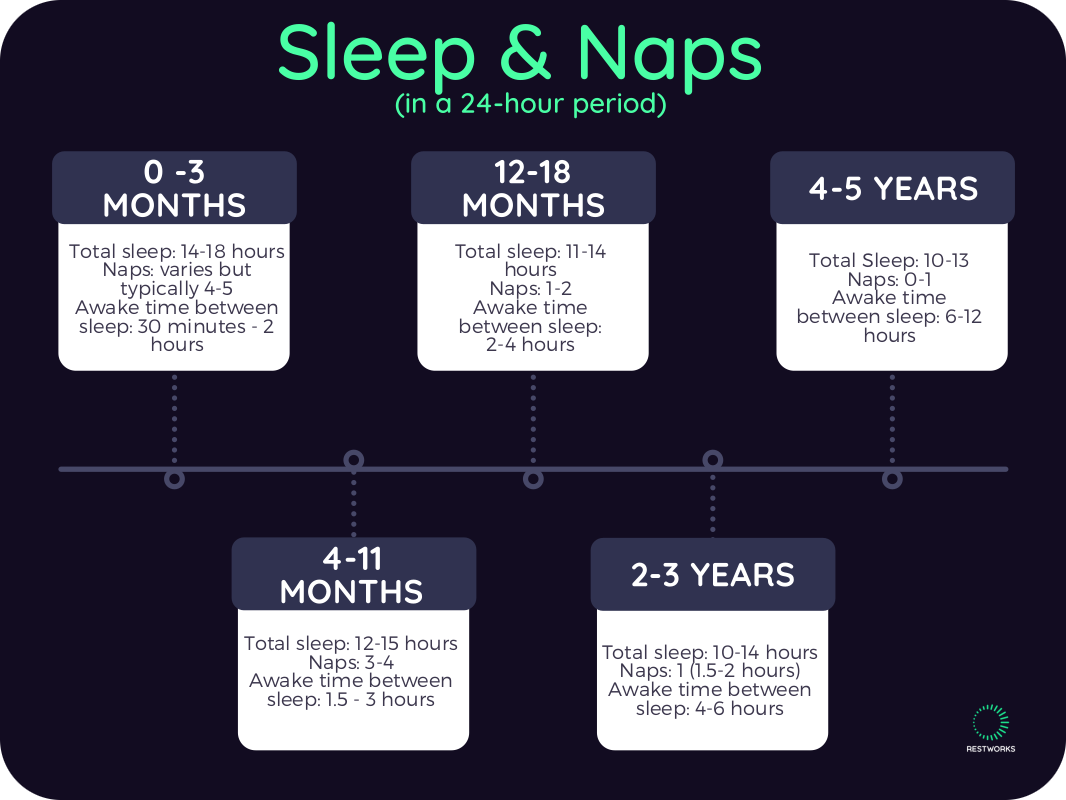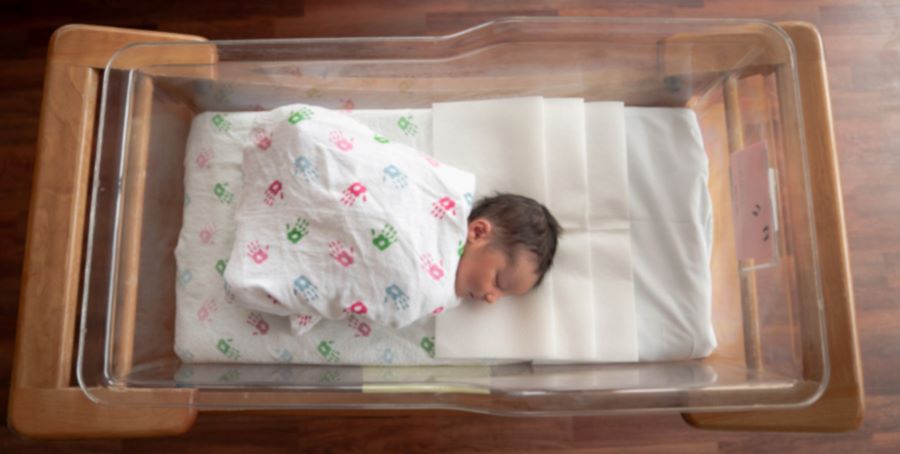Understanding Newborn Sleep
If you are a first-time parent, worry and doubt about how long and how often your baby needs to sleep might be causing you some sleepless nights. And as no two babies are alike, even a seasoned parent might be wondering what to make of baby #2 or #5 who isn’t following any of the patterns of their older siblings.
Let’s try to shed some light on the mystery of newborns and sleep.
How much sleep does a newborn need?
When a baby is born, they can spend as much as 18 hours asleep each day. That’s a lot of sleep! However, this sleep is fragmented into several daytime naps with short wake windows between them. Baby stomachs are small, and they need to feed at least every 3 hours. They will rotate in a cycle of nap, play, eat, nap, play, eat. On repeat. How often and how much they eat can depend on whether they are on breastmilk or formula and how old they are. Be sure to consult your pediatrician to figure out what is best for your baby and if you should wake your baby for feedings.
Newborn sleep cycles are shorter than adults
If it feels like your baby just catnaps all day long, rest assured that this is quite normal. Newborns have a shorter sleep cycle than adults. It is typical for newborn sleep cycles to last about 45-minutes, compared to 90-minutes for adults.
For catnappers, linking sleep cycles may require some gentle coaching. Just before your baby wakes (say, about 35-40 minutes into a nap), you can try putting a hand on their chest to provide light pressure and the reassurance that you are there. If your baby uses pacifiers, offer baby a pacifier while asleep as the sucking reflex is soothing to babies and might help transition into a 2nd or 3rd sleep cycle without waking.
How many naps do babies need?
As time goes on, babies stay awake longer between sleep so their overall time spent asleep decreases. By the time kids reach Kindergarten, most kids are spending about half the day sleeping.
READ ALSO: Sleep during Pregnancy

Tips for surviving the early months of parenthood
Understanding newborn sleep can seem a futile effort, especially if you are a first-time parent. You may wonder whether you baby is getting enough sleep – or whether they are sleeping too much. When your baby is asleep, you may experience anxiety about their comfort, temperature, breathing, when they need to wake to feed. It can throw curve balls whether this is your first born or a seasoned pro.
A few tips to remember during this time:
- Babies sleep a LOT – as many as 18 hours a day at the beginning.
- Newborns, especially breastfed newborns, have small stomachs so they will wake frequently to nurse or take a bottle. Waking during the night is normal!
- Babies have shorter sleep cycles than adults so it’s normal for them to cat nap. Don’t worry, they’ll figure out how to connect those cycles for longer stretches of sleep.
- Sleep regressions happen, particularly when a baby is learning a new skill (rolling over, crawling, standing, walking) and at different times during their development. Stay consistent with your schedule and sleep routine and your baby will get back to sleeping.
- Finally – new parents need to take care of themselves in order to care for their children. So SLEEP WHEN BABY SLEEPS! The laundry and other household chores can wait.
If you experience postpartum “blues” after childbirth (common symptoms include feelings of sadness, hopelessness or guilt, anxiety, crying and difficulty sleeping), please speak to your healthcare professional. There are mental health resources and treatment for postpartum depression available to you.


